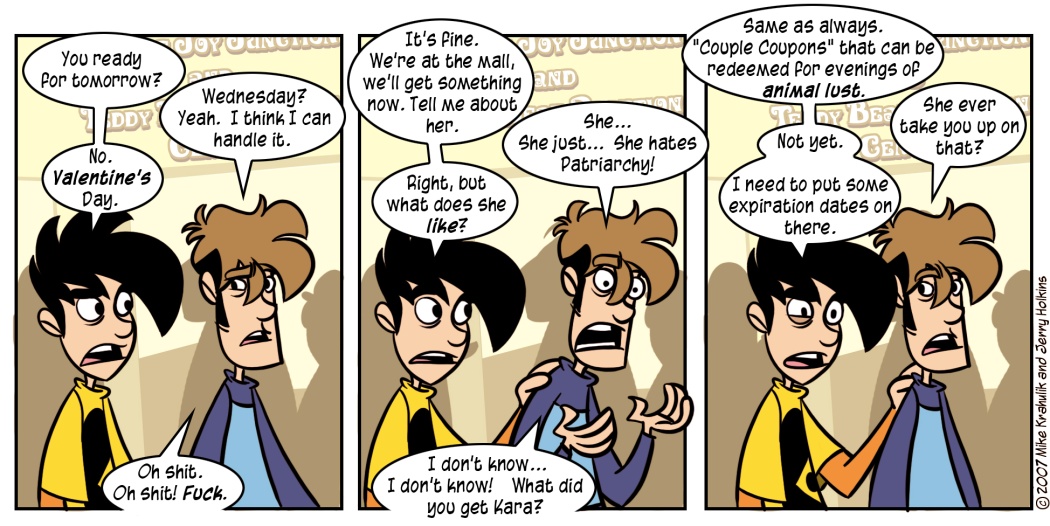The last page of Lookouts: A Boy Must Learn is here. At least, for now. Next time in, sooner than later I hope, we'll deal with The Daughters.
I've been surprised to see Alan Wake reviewed as well as it has been. I was able to scam a review build in exchange for Fury of Dracula, a pretty incredible trade really, as I'd probably only be playing Fury of Dracula with this guy anyhow.
It's canny maneuvers like this that have made me so influential.
The review copy came in a plain white sleeve, and the previews available at the time were from off-brand outlets I'd certainly never heard of. That isn't an index of their quality, of course - there are lots of things I don't know about. For example, my ignorance of quantum mechanics doesn't affect the ability of atoms to form molecular bonds. But it wasn't really the full-court press you'd expect from a first party title, and it makes me wonder what their expectations were for the title, to the extent they had them at all.
The surprise I referred to comes from the fact that Alan Wake has sins aplenty. They're sins I was willing to overlook, when taking the game in aggregate, but "a generous heart" isn't something I demand from a pro. It doesn't have that raw, perpetually unfolding novelty that is the guarantor of a strong assessment, around every corner a strong setpiece, the budget blown on hooky one-off gameplay segments. If you've played it for an hour, you have a fairly good idea of the game's structure. "Enemy Variety" as an accepted index of retail software virtue is nonexistent. The palette can shift hard between cutscenes and gameplay, leading one to wonder (as in Splinter Cell: Conviction) if they are from some earlier vision of the game.
It rests on a very nice piece of technology, though, hand-made to do what it's doing: scare you in the woods. The particulars of Northwest forests are not unknown to me, having grown up in them, and also, I write for a living. So Alan Wake presents me with a heavy dose of nostalgia die-cut to my own specifications. It's written well enough, with flashes of brilliance which manifest themselves in the scattered pages of a manuscript the protagonist doesn't remember writing. The pages are, literally, a novelization of the game you are playing - but they're out of order. Characters who haven't been introduced are teased, the motivations of past actions are investigated, and parallel stories are looked in on.
It's a game that has as its primary goal the construction of an atmosphere, and if that atmosphere gets hold of you, there's a good chance you'll vote the rest of the ticket.
The Humble Indie Bundle is completely fascinating, and since there's only four days left, it's important that we get to it. A broad coalition of independent developers have joined forces to deliver their games as a set - and you can choose your price, or give codes for the bundle as a gift. It's also something akin to the ultimate multiplatform offering: all five games on offer run on Windows, Mac, and Linux, and all are delivered absent any kind of digital rights management. There's even a clever UI that lets you choose how your donation is distributed between Child's Play, the EFF, and the developers themselves. It's incredibly smart top to bottom, and in the first few days of its operation they've generated almost a half-million dollars - though I strongly suspect that is only the beginning.
(CW)TB out.
